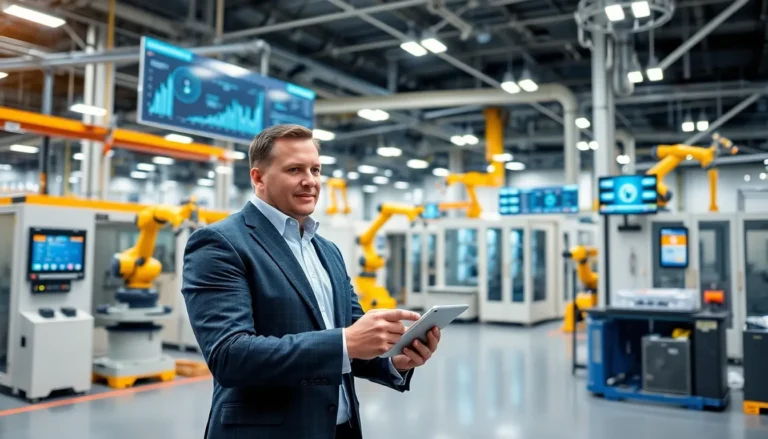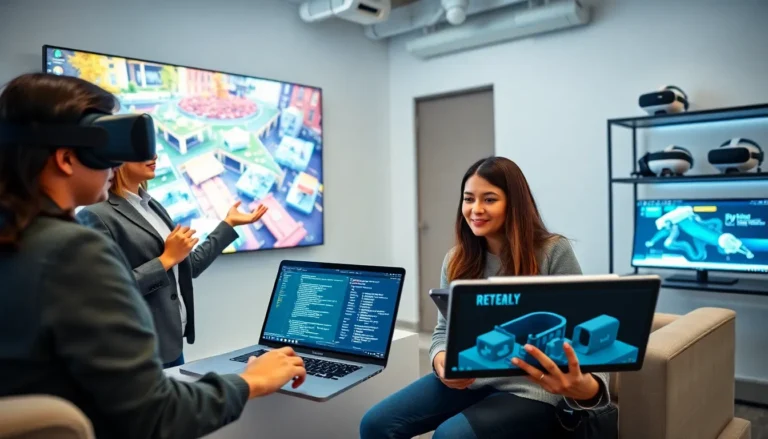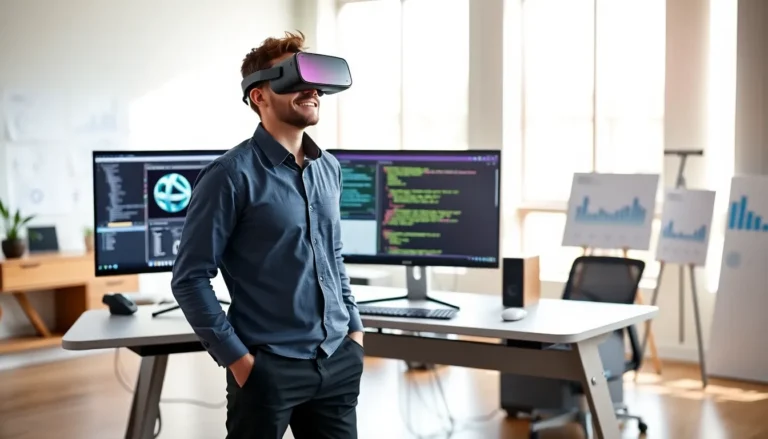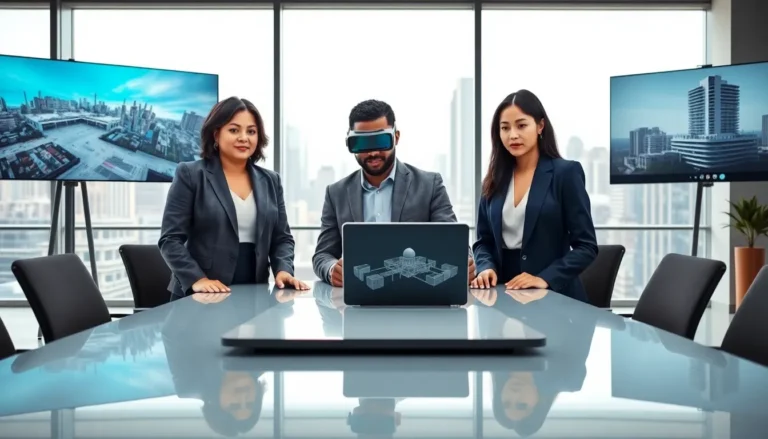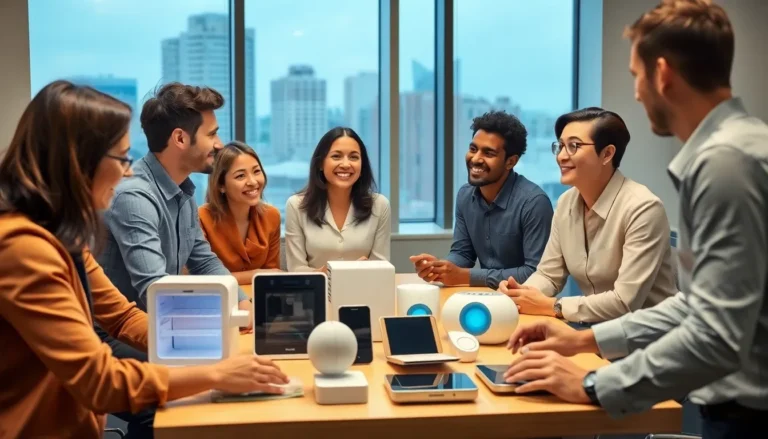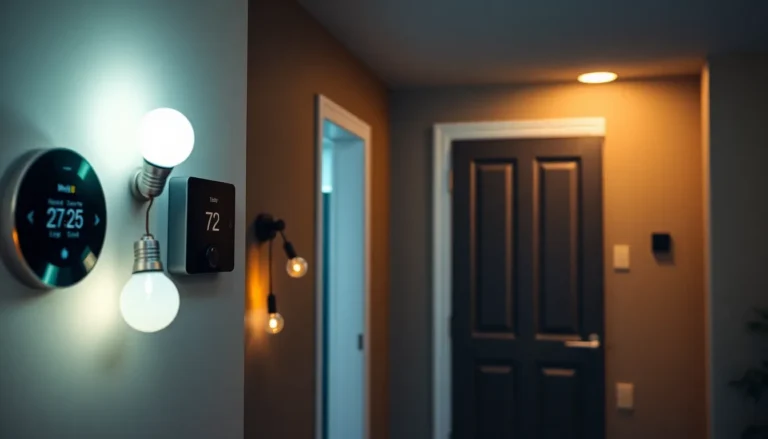In the heart of America, Indianapolis is not just about racing and basketball: it’s gearing up to be a hotspot for virtual reality (VR). Picture this: stepping into an entirely new world without leaving your seat. While most folks are still figuring out how to use their smartphones, the cutting-edge tech of VR is already redefining entertainment, education, and even healthcare. So, buckle up as we dive deep into the intriguing realm of VR in Indianapolis. Prepare to be amazed.
Table of Contents
ToggleOverview of Virtual Reality
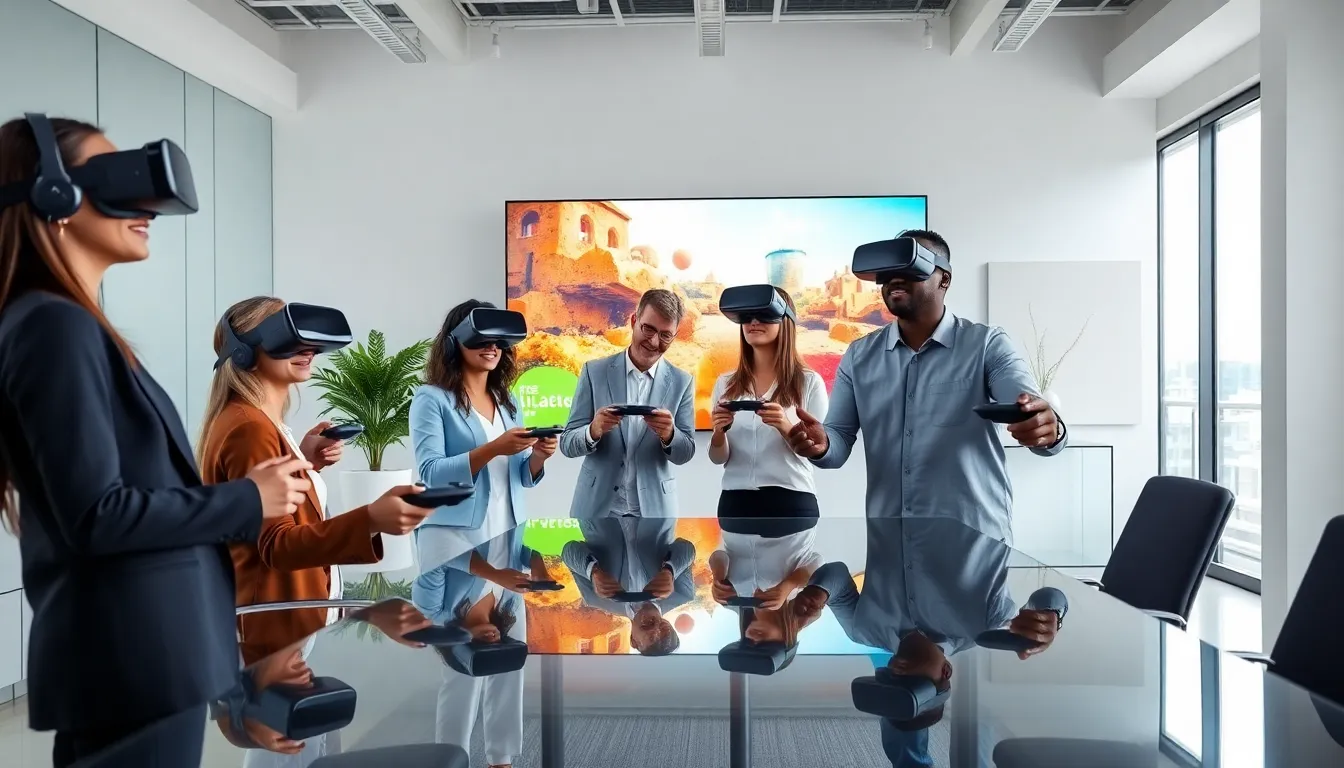
History and Evolution of Virtual Reality
The concept of virtual reality dates back to the 1960s when computer scientist Ivan Sutherland created a head-mounted display system. Fast forward to the 1990s, and VR gained popularity in gaming and cinema, although the technology lagged behind due to high costs and inadequate graphics. Today, advancements in computing and graphics technology have made VR accessible, opening up an array of possibilities across multiple sectors.
How Virtual Reality Works
In simple terms, virtual reality immerses users in a computer-generated environment that they can interact with in realistic ways. Using headsets and handheld controllers, it creates a sense of presence, making users feel like they’re truly part of the virtual world. This technology relies on a combination of hardware, such as sensors and displays, along with software that simulates realistic experiences.
The Impact of Virtual Reality in Various Industries
VR in Entertainment and Gaming
The gaming industry has always embraced new technologies, and VR takes it to new heights. With immersive experiences that allow players to step into the game, they can now interact with their surroundings more naturally. Many popular titles are already making waves with VR modules, offering gamers a whole new realm of experiences.
VR in Education and Training
Imagine students learning about ancient civilizations by virtually walking through historical landmarks. VR enables immersive learning experiences that enhance engagement and retention. It’s already revolutionizing training programs across industries, from medical simulations to virtual classrooms, making learning both effective and fun.
VR in Healthcare
In healthcare, VR is used for everything from surgical training to therapeutic applications. Surgeons can practice complex procedures in a risk-free environment, while patients undergoing therapy can benefit from exposure to virtual environments designed to treat phobias or anxiety.
Virtual Reality Scene in Indianapolis
Key VR Venues and Experiences in Indianapolis
Indianapolis is rapidly becoming a hub for virtual reality enthusiasts. Key venues like The VR Zone offer various experiences, from arcade-style challenges to immersive storytelling adventures. These facilities provide a space for individuals to experience the latest in VR technology firsthand.
Local VR Startups and Businesses
The city is home to some innovative VR startups catering to various sectors, including education and real estate. Companies like Synthetic Cinema are pushing the envelope with interactive storytelling, while others are focusing on using VR for training and simulations.
Upcoming VR Events and Meetups
Challenges and Future of VR in Indianapolis
Even though the buzz surrounding VR, challenges remain. Adoption costs and technological limitations can hinder widespread implementation. But, local events and meetups serve as platforms for enthusiasts and professionals to connect, share ideas, and explore solutions for overcoming these obstacles.
Technological and Accessibility Challenges
As with any technology, standardization is key. Ensuring systems work seamlessly across different platforms is vital. Accessibility also remains a significant concern: making VR experiences available to a wider audience requires thoughtful design and development.
Future Trends in Virtual Reality Development
The future of virtual reality looks exceptionally bright. Expected advancements include improved hardware, which will enable more immersive experiences, alongside augmented reality overlays. Integrating AI with VR will likely personalize experiences based on user behavior and preferences. The healthcare sector may see even more applications, potentially making VR a staple in medical training and patient care.




